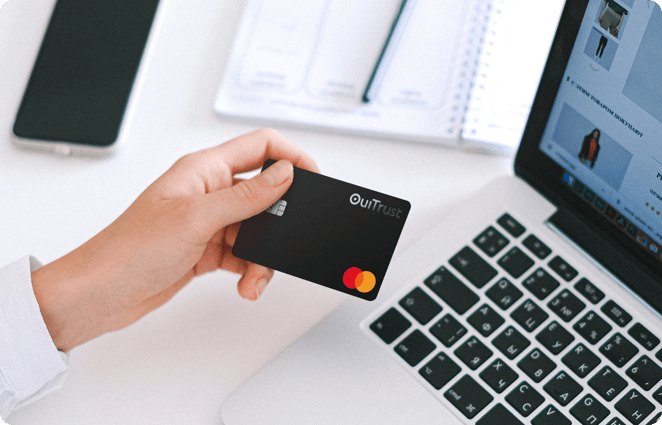Recently, the Executive Board of the International Monetary Fund (IMF) completed its five-yearly review of the Special Drawing Right (SDR) fixing, and the RMB Trade-Weighted was raised from 10.92% to 12.28%. This upward adjustment means that the RMB is being more widely used in international trade and foreign exchange reserves. This reflects the rising international status of the RMB and is the latest development in its internationalization.
Basics of the Renminbi (RMB)
The Renminbi (RMB) is China's legal tender and is denominated in Yuan (¥), and has the common currency code RMB or CNY.
In the foreign exchange market, there are two types of RMB: CNY and CNH, which refer to Onshore Chinese Yuan/CNY and Offshore Chinese Yuan/CNH respectively.
You will learn from this article:
- Definition of CNY and CNH
- Why is there an exchange rate difference between CNY and CNH?
- How to benefit from RMB settlement?
- OuiTrust: Europe's first "RMB settlement expert"
- OuiTrust's real-time exchange tool
Definition of CNY and CNH
There are two types of RMB in China, CNY and CNH, both of which are traded on different markets.
- CNY is the RMB traded in mainland China.
- CNH is the RMB traded offshore outside mainland China.
CNY has developed over a longer period in the mainland trading market and is larger in size. Therefore, there is more regulation, which means that the RMB exchange rate is more influenced by central bank policies.
CNH is an offshore RMB, which has developed over a shorter period of time and is smaller but is also less restricted and can be traded freely with other currencies in the international foreign exchange market, just like the USD, EUR and other international currencies. If you are outside of China, you will need CNH when making international payments to China.
CNY vs CNH
Why is there an exchange rate difference?
| |
Onshore Chinese Yuan
CNY
|
Offshore Chinese Yuan
CNH
|
|
Start time
|
1984
|
2010
|
|
Market faced
|
Traded in the onshore market
|
Traded in the offshore market
|
|
Limited
|
Regulated by the government and trading will be restricted
|
Fewer trading restrictions
|
|
Exchange rate
|
Fluctuating within 2% of the People's Bank of China at the reference rate
|
Free floating exchange rates determined by the market
|
The above comparison shows that the CNY market is subject to tighter exchange controls, while the CNH is more closely linked to the international financial markets and has more freedom to be affected by fluctuations in the international financial markets, and the CNH is a more objective reflection of the supply and demand for the RMB in the international markets. It is this difference that makes the exchange rate differential between CNY and CNH.
How can you benefit from RMB settlement?
Companies importing from the Chinese market
- Get a more transparent quote: Settlement in RMB pricing to reduce cost increases due to exchange rate changes
- Better exchange rates: better rates than bank rates and support for locking in foreign exchange.
- Expand your choice of suppliers: choose to trade across borders with suppliers who may previously have been unable to use foreign exchange; pay according to mainland Chinese supplier preferences and thereby support more effective business relationships.
- Improve operational efficiency: save time and costs by making payments to Chinese suppliers or employees through the bulk payment function.

Exporters to the Chinese market
- Reduce risk: For two-way trade involving imports and exports, holding RMB can hedge foreign exchange risk.
- Improve controllability: control the timing of foreign exchange transactions on your own, based on market fluctuations.
- Improve liquidity efficiency: eliminating the need for foreign currency settlement helps shorten the settlement cycle and days to accounts receivable.
- Expanding customer base: have the ability to select customers who were previously unable to use foreign exchange trading for cross-border trade and increase customer base.

Now that you know the benefits of using the RMB for settlement, are you starting to get a little interested in how to make international payments in RMB? Want to have easy access to RMB payment services? We have the solution for you!
OuiTrust - Europe's first "RMB settlement expert
OuiTrust is one of the first fintech companies in Europe to focus on providing RMB accounts and settlements to traders. We can provide you with a comprehensive range of unique and creative financial solutions to help you cope with the diverse market changes and advance your growth strategy in the Chinese market.
Now it only takes a few minutes to create a multi-currency (including RMB) dedicated company IBAN account. Through this IBAN, you can receive, place, and manage your RMB funds and better manage transactions from China.

In terms of licenses, OuiTrust has obtained EMI licenses issued by French ACPR and British FCA. In particular, the Bank of France is one of the strictest financial regulators in Europe, and its review of financial licenses is very strict. Only 16 companies in the world have obtained this license, and OuiTrust is the only Asian fintech company that has obtained this license. The licence allows OuiTrust to provide financial services in Euro Economic Area (EEA) markets.

In terms of security of funds, OuiTrust is hosted by a European bank, strictly separate from its own operating funds and protected by the Central Bank's Deposit and Disposal Guarantee Fund (Fonds de Garantie des Dépôts et de Résolution), which protects deposits of up to €100,000 for a single client.
OuiTrust Real-time Exchange Tool
Helps you save up to 1.5% on foreign exchange fees
In addition, if you choose to send money to China in other currencies, we can also help you convert the original currency amount on your account (e.g. GBP or EUR) directly into RMB at an excellent exchange rate, and then wire a lump sum to your partner in China, with no hidden fees and 1.5% less foreign exchange loss than traditional banks, making it faster and more cost effective than traditional banks.
This is because OuiTrust's intelligent trading engine uses self-developed intelligent haircut algorithms and capital flow prediction algorithms. The system's foreign exchange quotation accuracy is as high as 0.00000001, which allows you to quickly complete locks and transactions, narrow the foreign exchange spread between buyers and sellers, and price better than the market price.
